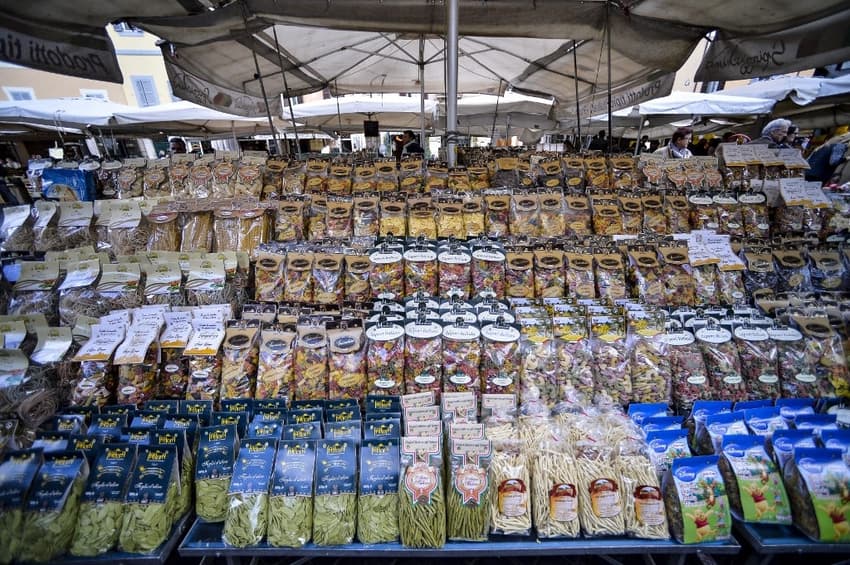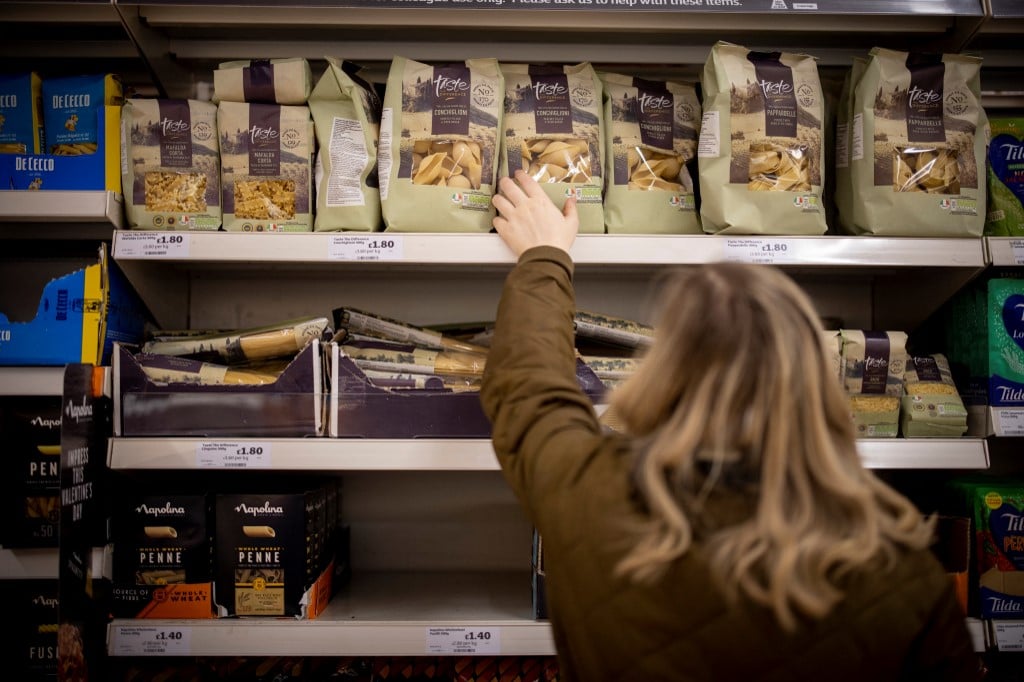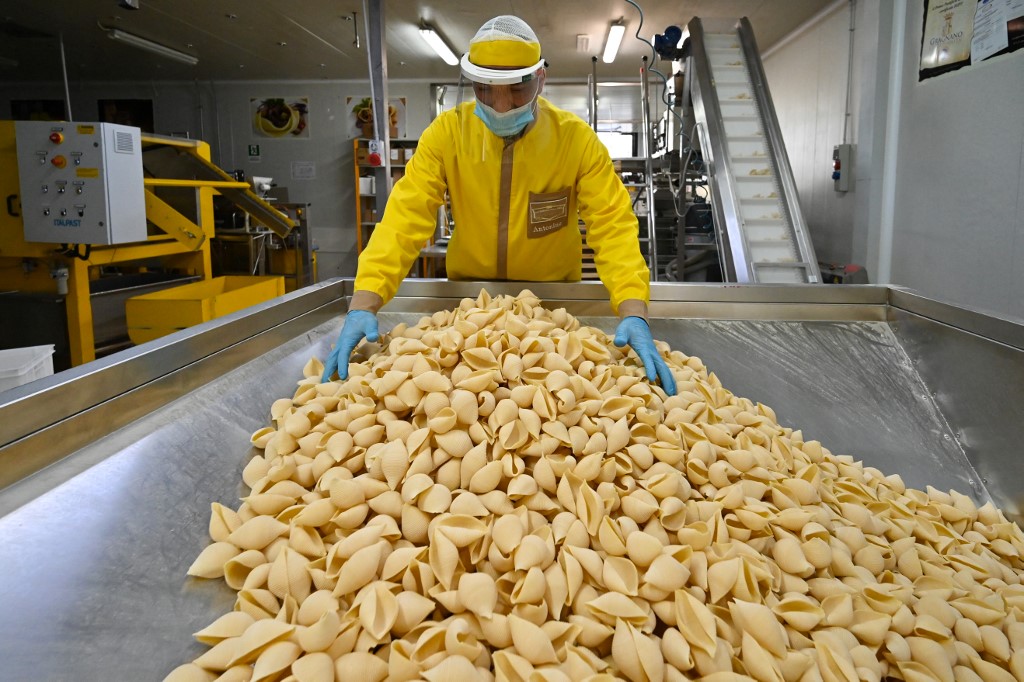Why Italian shoppers are being urged to go on ‘pasta strike’

Shoppers in Italy are being asked to stop buying spaghetti. And fusilli, fettuccine, and farfalle. In fact, campaigners want everyone in the country to stop buying pasta in any shape or form for a full seven days. But are many likely to do so?
Soaring pasta prices in Italy have been making headlines since March, when the government held a crisis meeting to address the issue.
The cost of the Italian household staple had soared by 17.5 percent year-on-year, according to government statistics - more than double the rate of inflation.
But, following the crisis meeting, the government said it had decided not to intervene on pasta prices after all.
READ ALSO: Cost of living: What are Italy's best price comparison websites?
In response, frustrated consumer advocate groups called for a nationwide, weeklong sciopero della pasta - which literally translates as ‘pasta strike’, though it’s really more of a boycott.
Consumer group Assoutenti is urging shoppers across the country to leave pasta on the supermarket shelves for seven days, from Thursday June 22nd until Friday June 30th.
As well as being a protest, Assoutenti president Furio Truzzi said in a statement, the boycott would also show “whether keeping the shelves full brings prices down, as often happens with a boycott of goods”.

A customer shops for pasta at a supermarket. Consumer associations have asked Italian shoppers to boycott pasta this week due to soaring prices. (Photo by Tolga Akmen / AFP)
The average price of pasta in Italy is now €2.13 per kilogram, according to the group, up from €1.70 a year earlier.
There was some regional variation in prices. The most expensive place to buy pasta in Italy was found to be Ancona, at €2.44 per kilogram on average.
While a packet of pasta is still among the cheapest items in shoppers' baskets, the amount of pasta most people in Italy buy means this increase is contributing to the rising cost of living.
Economists have pointed to higher food production costs due to inflation, but Assoutenti claims that, in the case of pasta, market “speculation” is at work.
Assoutenti estimates that the year-on-year price increase is actually over 25 percent, which it says is “absolutely out of proportion” to increased production costs.
READ ALSO:
- How to decipher Italy's mind-boggling pasta menus
- How to sauce pasta the Italian way
- Why you won’t find spaghetti bolognese in Italy
Unione Italiana Food, an association representing Italy’s food producers, says most of the pasta being sold now was made when the raw material costs were higher due to the war in Ukraine fuelling higher energy costs and supply issues.
“The pasta on the shelves today was produced months ago, with durum wheat purchased at the prices of [an] even earlier period, and with the energy costs of the wartime peak,” the association said in a statement.

Conciglie being produced at the Pasta di Gragnano factory near Naples. After Covid-19, producers are now being hit by rsing inflation and costs. (Photo by ANDREAS SOLARO / AFP)
With wheat and energy costs now on the decline, the Italian government appears to be hoping pasta prices will also fall in the coming months.
Ministers did say they would increase price monitoring, working more closely with the country's 20 regional authorities, but without imposing any restrictions.
Italian news reports this week appeared to confirm that the pasta boycott was going ahead - though it was unclear how many shoppers planned to take part, with little discussion of it on social media so far.
A full seven-day abstention could prove a struggle for most - unless their cupboards are particularly well-stocked, or they have nonna’s recipe for handmade tagliatelle: some 60 percent of people in Italy are estimated to eat pasta every single day.
Comments
See Also
Soaring pasta prices in Italy have been making headlines since March, when the government held a crisis meeting to address the issue.
The cost of the Italian household staple had soared by 17.5 percent year-on-year, according to government statistics - more than double the rate of inflation.
But, following the crisis meeting, the government said it had decided not to intervene on pasta prices after all.
READ ALSO: Cost of living: What are Italy's best price comparison websites?
In response, frustrated consumer advocate groups called for a nationwide, weeklong sciopero della pasta - which literally translates as ‘pasta strike’, though it’s really more of a boycott.
Consumer group Assoutenti is urging shoppers across the country to leave pasta on the supermarket shelves for seven days, from Thursday June 22nd until Friday June 30th.
As well as being a protest, Assoutenti president Furio Truzzi said in a statement, the boycott would also show “whether keeping the shelves full brings prices down, as often happens with a boycott of goods”.

The average price of pasta in Italy is now €2.13 per kilogram, according to the group, up from €1.70 a year earlier.
There was some regional variation in prices. The most expensive place to buy pasta in Italy was found to be Ancona, at €2.44 per kilogram on average.
While a packet of pasta is still among the cheapest items in shoppers' baskets, the amount of pasta most people in Italy buy means this increase is contributing to the rising cost of living.
Economists have pointed to higher food production costs due to inflation, but Assoutenti claims that, in the case of pasta, market “speculation” is at work.
Assoutenti estimates that the year-on-year price increase is actually over 25 percent, which it says is “absolutely out of proportion” to increased production costs.
READ ALSO:
- How to decipher Italy's mind-boggling pasta menus
- How to sauce pasta the Italian way
- Why you won’t find spaghetti bolognese in Italy
Unione Italiana Food, an association representing Italy’s food producers, says most of the pasta being sold now was made when the raw material costs were higher due to the war in Ukraine fuelling higher energy costs and supply issues.
“The pasta on the shelves today was produced months ago, with durum wheat purchased at the prices of [an] even earlier period, and with the energy costs of the wartime peak,” the association said in a statement.

With wheat and energy costs now on the decline, the Italian government appears to be hoping pasta prices will also fall in the coming months.
Ministers did say they would increase price monitoring, working more closely with the country's 20 regional authorities, but without imposing any restrictions.
Italian news reports this week appeared to confirm that the pasta boycott was going ahead - though it was unclear how many shoppers planned to take part, with little discussion of it on social media so far.
A full seven-day abstention could prove a struggle for most - unless their cupboards are particularly well-stocked, or they have nonna’s recipe for handmade tagliatelle: some 60 percent of people in Italy are estimated to eat pasta every single day.
Join the conversation in our comments section below. Share your own views and experience and if you have a question or suggestion for our journalists then email us at [email protected].
Please keep comments civil, constructive and on topic – and make sure to read our terms of use before getting involved.
Please log in here to leave a comment.